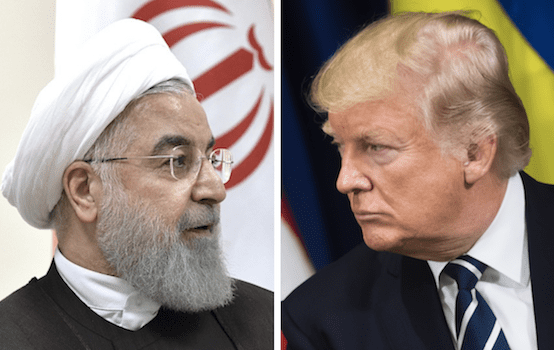Why ‘Maximum Pressure’ Doesn’t and Can’t Work

Ariane Tabatabai reviews the poor record of the Trump administration’s “maximum pressure” campaigns against North Korea and Iran:
Where the pressure campaign against North Korea was too minimalist, Iran sees the campaign against it as so maximalist that it is not inclined to negotiate. The campaign’s scope is too broad, encompassing virtually all aspects of the regime’s foreign and security policies, and its objectives virtually unattainable without regime change. It is also too indiscriminate. The sanctions regime is affecting many average Iranians, including medical patients, children, and students, who are unable to afford medication or pursue their studies outside their country. For now, the Iranians seem to have made the decision to wait out the Trump administration and not return to the negotiating table until they have more clarity on the trajectory of U.S. domestic politics in the next two years.
Both “maximum pressure” campaigns have failed in their stated aims because the administration has made demands that are excessive and touch on the other government’s perceived core security concerns. In the Iranian case, “maximum pressure” was never going to bring their government back to the table after the U.S. unceremoniously reneged on its commitments under the existing nuclear deal. To resume negotiations with an administration that had just proven itself to be completely untrustworthy would be to invite political ruin at home for anyone that tried it. Faced with expansive and unrealistic demands that Iran essentially abandon its entire foreign policy and all of its nuclear program, no self-respecting Iranian government could do anything other than reject them. As for North Korea, the administration has labored under the false belief that sanctions pressure was responsible for getting Kim to talk when it was the completion of North Korea’s own nuclear weapons and missile development that created the opening for negotiations. The Trump administration has been consistently wrong about the effectiveness of sanctions and the extent of concessions that the other side is prepared to make, and because they are so convinced that sanctions can be effective they are unwilling to offer any sanctions relief that might give the other government an incentive to compromise. Instead, the administration is responding to its failure at the Hanoi summit by threatening North Korea with more sanctions:
“If they’re not willing to do it, then I think President Trump has been very clear … they’re not going to get relief from the crushing economic sanctions that have been imposed on them and we’ll look at ramping those sanctions up in fact,” said Bolton, a hardliner who has advocated a tough approach to North Korea in the past.
Sanctions frequently fail to change the behavior of a targeted regime, and they are almost guaranteed to fail when they are used to try to force radical changes to a regime’s security policies. The more vitally important a regime believes these policies are to its survival and security, the less likely they are to compromise them because a foreign adversary threatens to punish them if they don’t. It’s a normal, predictable reaction to outside coercion, and it is exactly how we would respond if if we were in their position. When an adversary threatens punishment unless we agree to do what they want, the standard response is to do the opposite of what they demand. Sometimes this is the response just because they have demanded it of us. Because our policymakers can’t or won’t see things from the side of the governments whose behavior they are trying to change, they routinely opt for punitive measures that have failed again and again. The Trump administration remains wedded to a “maximum pressure” approach that doesn’t and can’t work in achieving their stated goals, and it isn’t going to achieve the regime change that they obviously want to bring about in Iran.
Comments